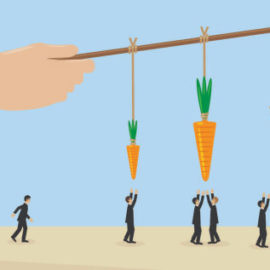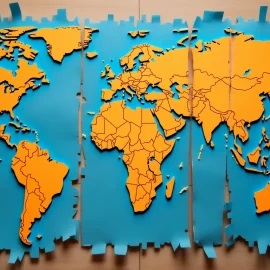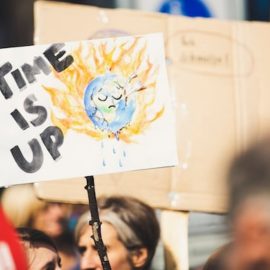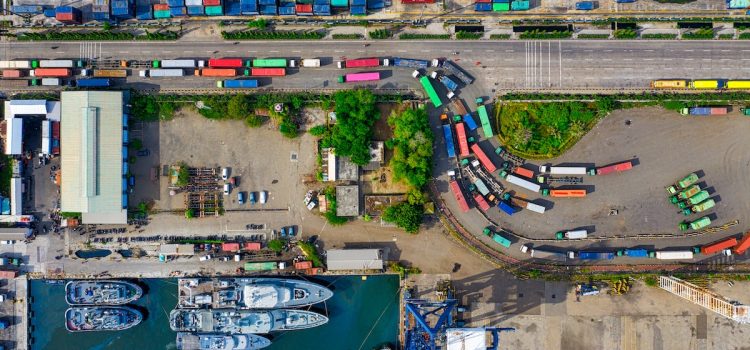
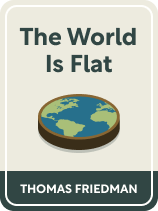
This article is an excerpt from the Shortform book guide to "The World Is Flat" by Thomas L. Friedman. Shortform has the world's best summaries and analyses of books you should be reading.
Like this article? Sign up for a free trial here.
Should we fight job outsourcing or automation? What tax policies support growth? When does the protection of intellectual property cross the line into over-protection?
To thrive amid globalization, the U.S. must find the right balance between global free trade and government regulation. Thomas L. Friedman looks at three issues that illustrate the importance of finding this balance: the outsourcing and automation of jobs, tax policies, and intellectual property laws.
Keep reading to learn Friedman’s ideas for balancing global free trade and government regulation.
Balancing Free Trade and Regulation
If the U.S. tries to insulate itself from globalization, it runs the risk of losing major ground to its global competition. But, doing nothing to protect its citizens from the potential downsides of globalization is also dangerous. He examines three matters that relate to this balance between global free trade and government regulation.
Outsourcing and Automation
Friedman argues that America shouldn’t fight the outsourcing or automation of jobs. First, these changes will happen whether the government wants them or not. Trying to stop the changes will only delay the inevitable and hurt the U.S. in the process.
Second, Friedman points out that the outsourcing and automation of jobs could actually benefit the U.S. job market in the long run. Though certain factory and service jobs may leave the country, new jobs will replace them as long as the global economy is growing. The key is to make sure people are properly educated to take advantage of the opportunities.
| The Downsides of Protectionism In Naked Economics, Charles Wheelan argues, like Friedman, that international trade is good for the world and the countries that participate in it. But though it may benefit countries as a whole, it can hurt certain individuals, like those who lose their manufacturing jobs to someone across the world. When globalization affects enough people, there’s often public pressure on the government to implement protectionist policies: barriers to trade such as tariffs, taxes, sanctions, or regulations. These can save some local jobs, but protectionism can be damaging in several ways: —It decreases productivity: If a company or industry is protected from foreign competition, it won’t have the incentive to be as productive and efficient as possible. —It discourages innovation: Global competition will force companies to get creative, leading to innovation and a stronger economy. —It increases prices: When tariffs are implemented to make foreign goods more expensive, domestic products are usually made more expensive as well. To help soften the blow of job loss without implementing protectionist policies, there are some things a government can do, such as retrain or relocate displaced workers, provide assistance to hard-hit communities, and encourage schools to teach applicable skills. |
Tax Policies
To keep pace with globalization, Friedman argues that the U.S. needs fair and balanced tax policies that support businesses and the working middle class. Both are important for economic growth.
If there’s a high corporate tax rate, businesses will simply move locations. In the flat world, this is cheaper and easier to do. However, the government can’t put the tax burden on the middle class, either. A strong middle class is crucial to economic growth because it ensures there is a stable demand for goods and services.
| What Are Optimal Tax Rates? Friedman notes that finding the right tax rate is crucial but says that he’ll leave it to the experts to figure that out. Here’s what the experts at the Economic Policy Institute (EPI) have to say: Top marginal tax rates in the U.S. aren’t nearly high enough. They argue that determining the right tax rate is primarily about finding the balance between three economic challenges: economic growth, long-term sustainability, and income inequality. When considering these three factors, the EPI found that the ideal top marginal tax rate is roughly 68%. As of 2022, the top federal marginal tax rate in the U.S. is 37%. The EPI argues that raising top marginal tax rates could raise revenue and mitigate income inequality without significantly affecting economic growth. But their research fails to address Friedman’s key concern about raising tax rates, which is that companies will move their businesses out of the country. As studies have shown, globalization has led to reduced tax rates in developed countries due to increased tax competition. To determine the most effective tax policies, countries have to take globalization into consideration. |
Intellectual Property
According to Friedman, to succeed in the flat world, America should also figure out how to properly regulate intellectual property—inventions, art, or other creations of the mind. Such regulation must strike a balance: On the one hand, innovators must be protected by patents, copyrights, and trademarks so they can benefit from their creations—this incentivizes innovation, which is a hallmark of a free market system. On the other hand, intellectual property shouldn’t be over-protected because the sharing of ideas also fosters innovation. Thus, the law needs to be set up in a way that protects ideas but also encourages innovators to share these ideas.
| Intellectual Property in the Modern Age The rise of new technologies and knowledge-based industries has made intellectual property rights more important—and more complicated. The fastest-growing industries (electronics, software, biotechnology, telecommunications) all rely on the protection of intellectual property. The internet, however, has made protecting intellectual property difficult, because people can easily copy and reproduce material and share it with the rest of the world. To establish optimal intellectual property rights, a key thing to consider is what should remain private knowledge and what should be made public: We need to encourage innovation by allowing some knowledge to be kept private, but it is good for society for some information to be widely available. It may be beneficial for educational technologies, for example, to be accessible to all. It could also be argued that certain biomedical knowledge should be made public so that lifesaving technologies aren’t only available to those who can afford to pay private companies for it. |

———End of Preview———
Like what you just read? Read the rest of the world's best book summary and analysis of Thomas L. Friedman's "The World Is Flat" at Shortform.
Here's what you'll find in our full The World Is Flat summary:
- How the world is becoming one globalized society
- The potential costs and benefits of a flatter world
- How you can best contribute to a globalized society


